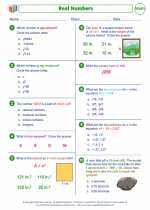Standard Deviation
The standard deviation is a measure of the amount of variation or dispersion of a set of values. It is a way to quantify the amount of variation or dispersion in a set of data values.
Formula
The formula for calculating the standard deviation of a sample is:
s = √(Σ(x - x̄)2 / (n - 1))
Where:
- s = standard deviation
- Σ = summation (add up all the values)
- x = each individual value in the data set
- x̄ = the mean of the data set
- n = number of values in the data set
Steps to Calculate Standard Deviation
- Find the mean of the data set.
- Subtract the mean from each data point and square the result.
- Find the sum of all the squared differences.
- Divide the sum by (n - 1) where n is the number of data points (this gives the variance).
- Take the square root of the variance to get the standard deviation.
Interpretation
A larger standard deviation indicates that the data points are spread out over a larger range of values, while a smaller standard deviation indicates that the data points are closer to the mean.
Use Cases
Standard deviation is commonly used in various fields such as finance, science, and social sciences to understand the variability of data and make informed decisions.
Conclusion
Understanding and calculating standard deviation is important for analyzing data and making statistical inferences. It provides valuable insights into the spread of data values and helps in making data-driven decisions.
.◂Math Worksheets and Study Guides Eighth Grade. Real numbers
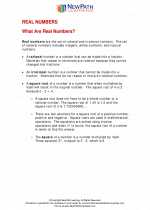
 Worksheet/Answer key
Worksheet/Answer key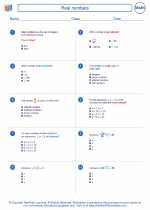
 Worksheet/Answer key
Worksheet/Answer key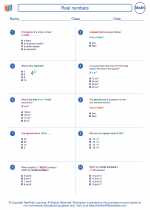
 Worksheet/Answer key
Worksheet/Answer key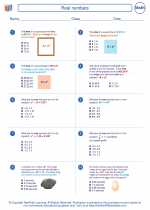
 Worksheet/Answer key
Worksheet/Answer key